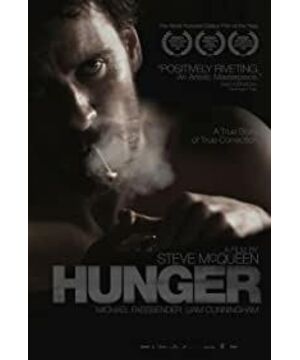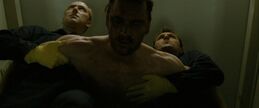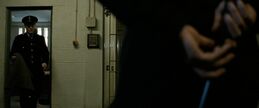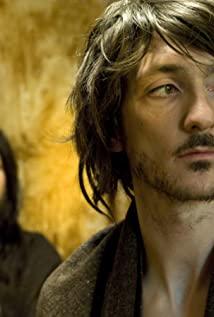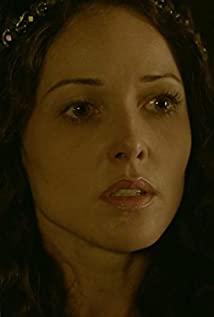The director was extremely bold and ignored the market-audience's feelings at all. The editing of the film went straight to the point of bluntness, and the camera stared directly at the actors and dared not move for a long time. The tone of the narrative is cold and blunt, like a punch that strikes directly at one's physical feelings - I'm not talking about the kind of blood that cuts limbs to pieces. Powerful actor Fassbender plays a dying hunger striker. Watching him stand up tremblingly from the bathtub makes you nervous, worrying that his bones will break suddenly; watching him lay on the bed struggling to breathe, like a dead blower, you will feel suffocated. From lying in the hospital bed to death, he really didn't have much room to perform, he didn't even say a word!
In the first forty minutes of the film, there is very little dialogue, some of which are still vague; then there is another dialogue that lasts for more than twenty minutes. A close-up shot; then there is a scene of a prison guard cleaning urine in the aisle of the prison. The same camera position remains the same. I see him go from here to there, and then from there to here, which makes people feel a little boring. Although the urine was swept into the cell. But when the camera cuts to the aisle floor, looking at the shiny urine, we hear the steady and tough voice-over of Iron Lady Thatcher, who obviously won't compromise because of the protagonist's hunger strike!
At this point, the film reaches its climax. The director omitted the process of the protagonist's hunger strike, which directly showed the multiple festering caused by hunger; an escort entered the bathroom and saw a pool of blood in the toilet—the director also omitted the process of vomiting; but for those who should usually be omitted The paragraphs are more reserved, and they burst into excitement from time to time. The most applauding scene is the scene on the hospital bed. The protagonist is lying on it, breathing, coughing, and convulsing with difficulty. As soon as it is closed, it makes people feel that the body of the protagonist is about to fall apart, and the soul is about to fly out!
Many people commented and praised "Hunger" for showing "will". This is a quick view, pretending to understand. The director has no intention of this at all. He calmly narrates the process of a struggle in life, giving the audience a strange and complex life experience.
Of course, we cannot help but ask: Is this self-harming practice right or wrong? The twenty-minute-long conversation between the protagonist and the priest revolved around this theme. In the end, no one persuaded anyone—the director was unwilling and unable to give an answer. But believe my opinion represents the values of most people: this is too extreme.
View more about Hunger reviews


